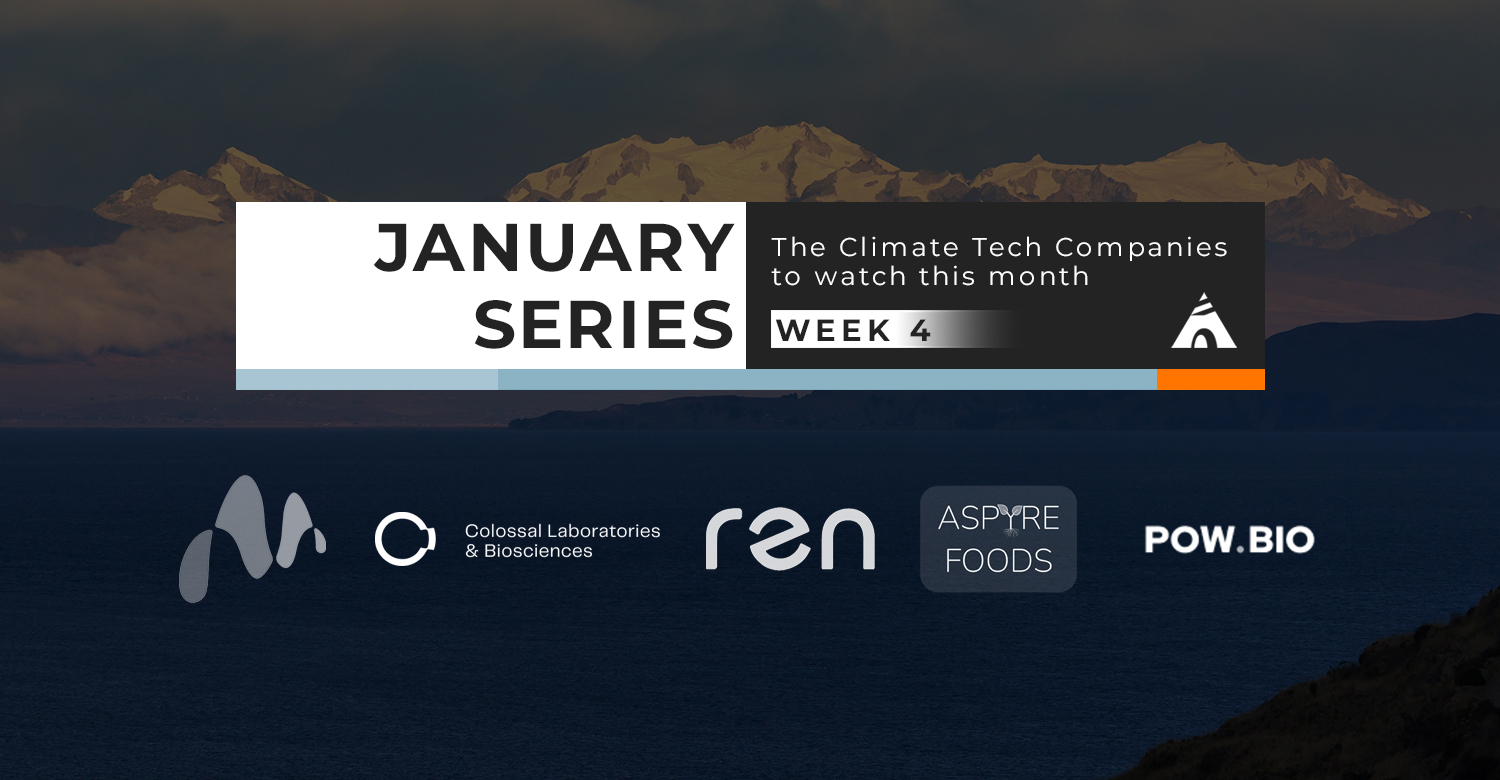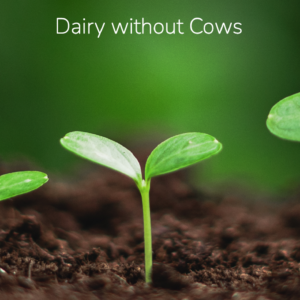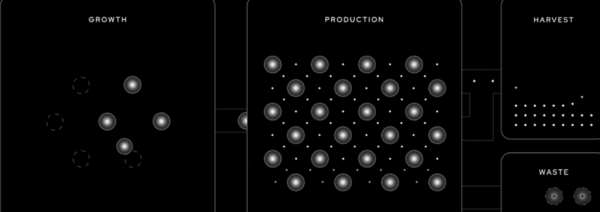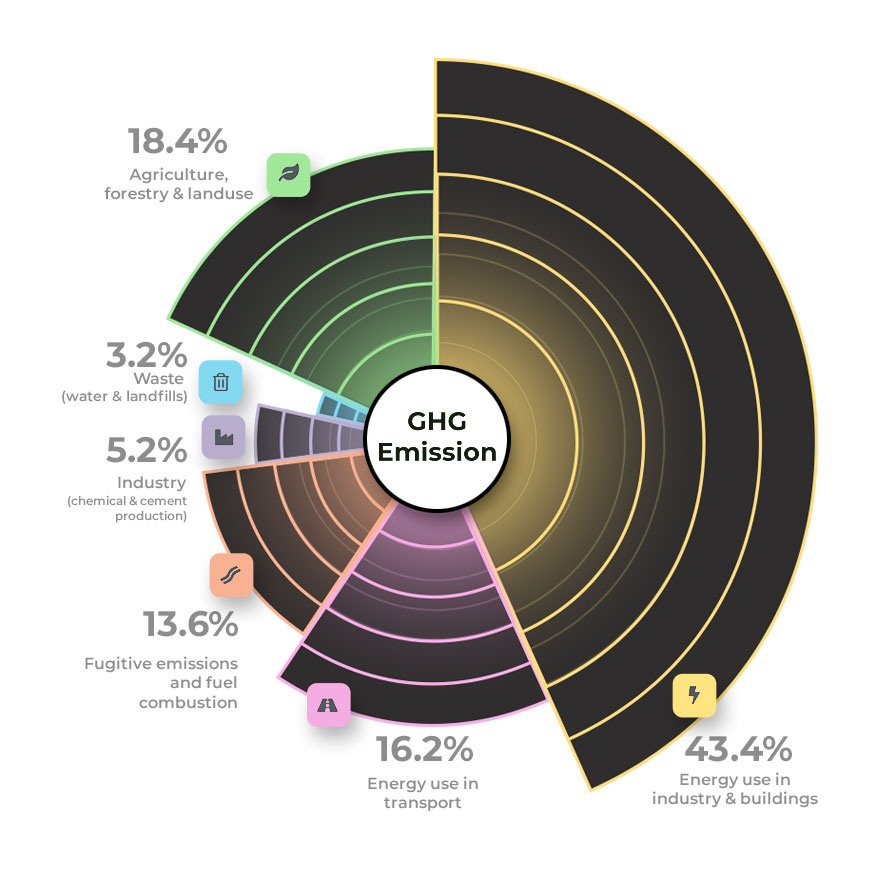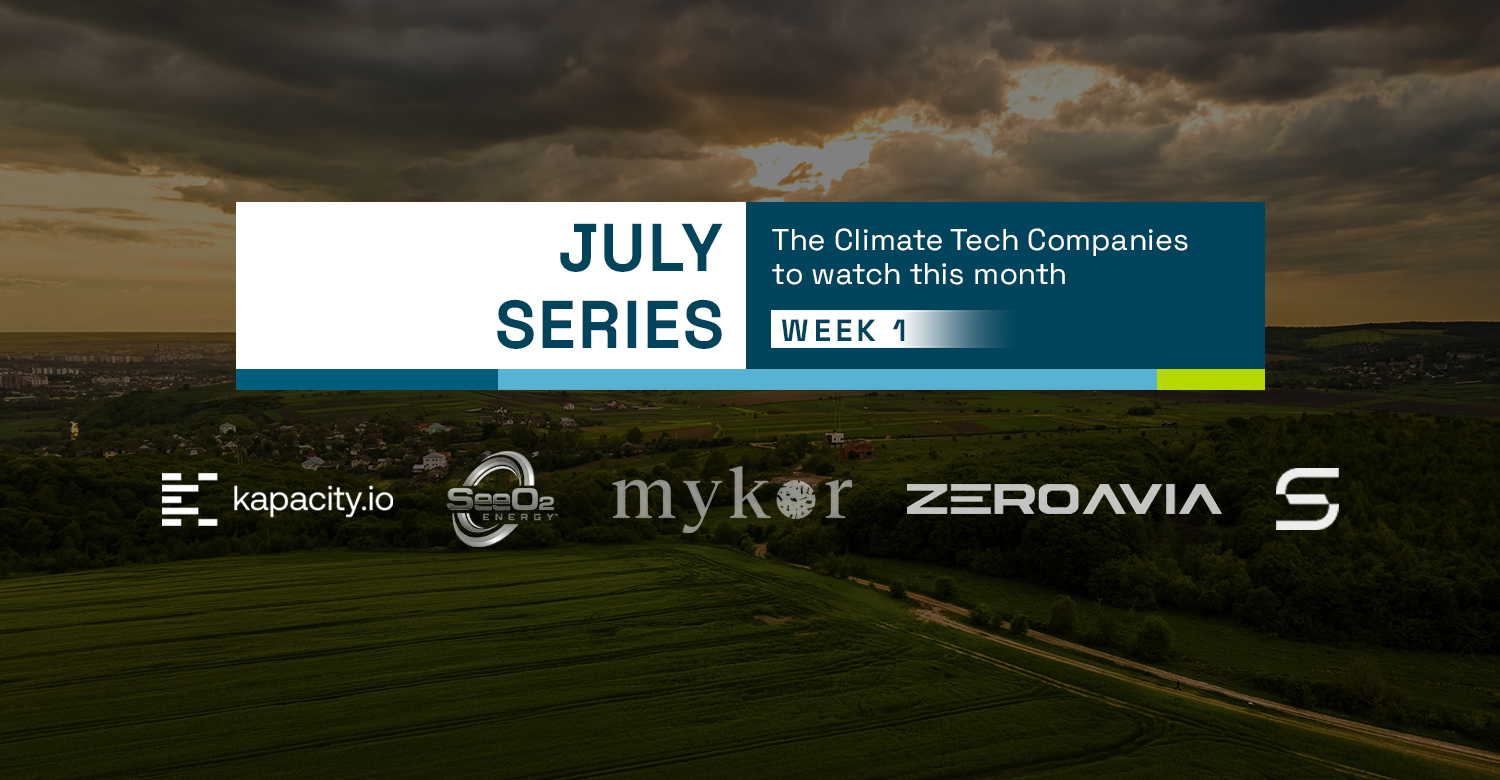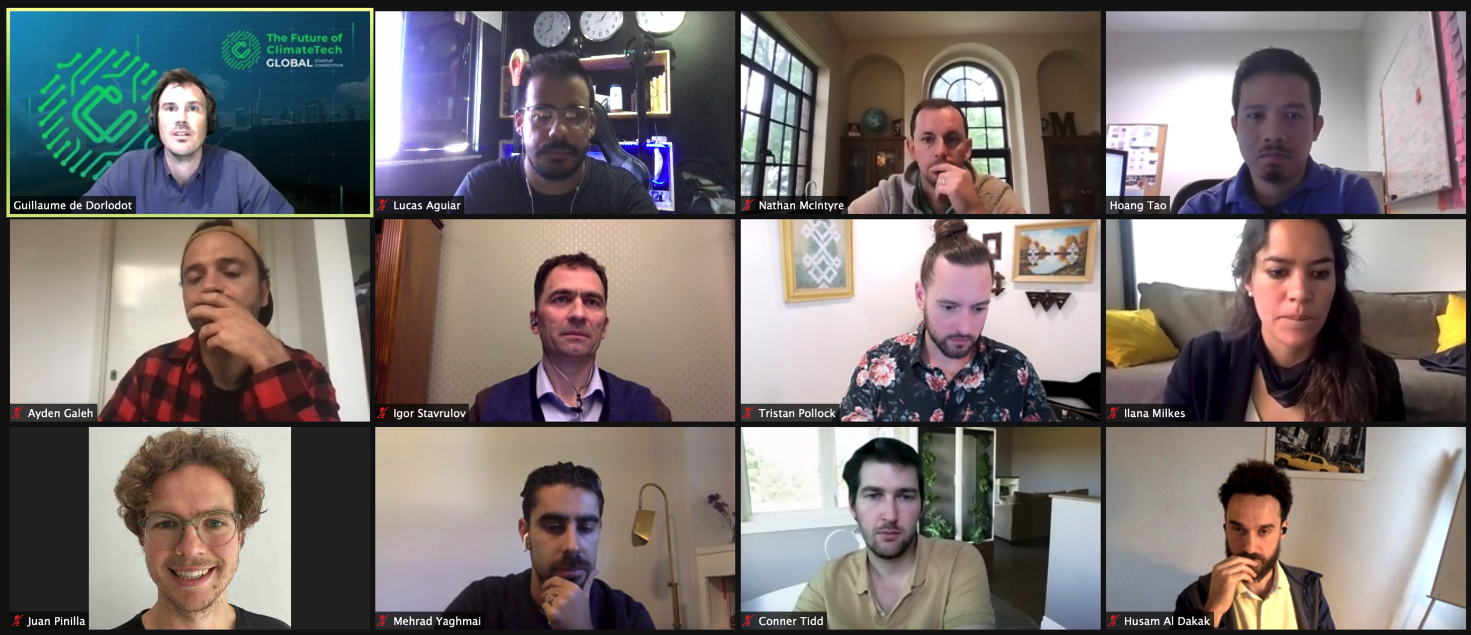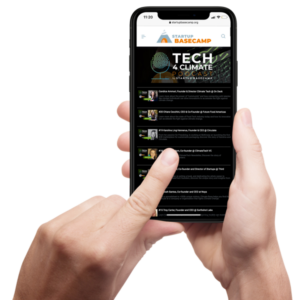January Week 4, 2024: In this weekly series, we highlight 5 climate tech startups to watch by featuring the incredible startups, companies, or projects that are leading the fight against the climate crisis.
Each month, we add these startups to our running list, which we have categorized based on fuel emission sector data from the most detailed, recent data SBC could identify from the World Resource Institute in 2016.
This initiative from Startup Basecamp aims to support founders by giving them access to networking and exposure opportunities that help them to scale and finance their climate tech solutions.
Do not hesitate to join our collective movement by requesting your membership.
With care,
Guillaume and the SBC TEAM
Energy use in Industry and Buildings
Founded: 2019 – Darmstadt, DE
Founders: Maximilian Fries, Dimitri Benke and Timur Sirman
Elevator Pitch: Their licensable & patented no-refrigerant low-energy cooling technology fits perfectly into supermarket applications and takes the temperature from an ambient of 20-25°C down to 5-0°C
Problem they solve: The cooling and heating sector faces numerous challenges, including high energy consumption, environmental impact of refrigerants, and compliance with stringent regulations. Traditional gas compression cooling systems are often inefficient and rely on harmful gases. MAGNOTHERM® addresses these issues with their advanced magnetic cooling technology, offering a low-pressure, highly efficient alternative. Their solution not only reduces energy consumption but also eliminates the use of hazardous materials, meeting the demand for environmentally-friendly and regulation-compliant cooling and heating applications.
Impact: By providing a more efficient alternative to conventional cooling and heating systems, their technology significantly reduces energy consumption and associated carbon emissions. The avoidance of harmful refrigerants aligns with efforts to protect the ozone layer and combat climate change. Additionally, the scalability of MAGNOTHERM®’s solutions makes them suitable for a wide range of applications, from residential to industrial, further extending their environmental benefits. By pioneering in the field of sustainable thermal energy conversion, MAGNOTHERM® is playing a crucial role in shaping a cleaner, more sustainable future in energy technology.
Stage: Seed.
Interested in MAGNOTHERM®?
To learn more about their technology or get in touch, see here.
Cross-cutting enablers
Founded: 2017 – Portland, USA
Founder: Eric Jen and Morgan West
Elevator Pitch: Empowering organizations to be 100% renewable through technology. Your supply chain renewable energy solution. Turn data into quality renewable energy projects, tailored to your decarbonization goals and commitments.
Problem they solve: While many organizations are committed to transitioning to renewable energy, the path to achieving these goals is often fraught with complexity, especially for companies with extensive global supply chains. The challenges range from financial and technical hurdles to logistical issues, making it difficult for these companies to source renewable energy effectively. Ren’s platform streamlines this process, offering a comprehensive solution that navigates these challenges, thereby enabling organizations to fulfill their renewable energy commitments efficiently and on schedule.
Impact: By making it easier for companies to transition to cleaner energy sources, Ren helps reduce dependence on fossil fuels and lowers greenhouse gas emissions. This shift is critical in the global fight against climate change and is essential for the realization of a sustainable, low-carbon future. Ren’s work in simplifying the renewable energy procurement process not only supports individual companies in meeting their environmental commitments but also contributes to broader efforts to combat climate change on a global scale.
Stage: Undisclosed.
Interested in Ren?
If you are interested in learning more, see here.
Agriculture, Forestry and Land Use
Founded: 2022 – Palo Alto, USA
Founders: Thomas Bartleman and Inge Mendelsohn
Elevator Pitch: Sustainable, ethical and affordable dairy products, without cows and without compromise.
Problem they solve: The traditional dairy industry faces significant challenges related to environmental sustainability, animal welfare, and the carbon footprint associated with livestock farming. Consumers are increasingly seeking ethical and eco-friendly alternatives without sacrificing the quality and taste they are accustomed to. Aspyre Foods addresses this gap by offering dairy products that are produced without cows, eliminating the associated environmental and ethical concerns. Their innovative approach provides a solution that meets both the dietary preferences and the ethical values of modern consumers.
Impact: By eliminating the need for livestock in dairy production, they significantly reduce greenhouse gas emissions, land use, and water consumption typically associated with traditional dairy farming. This approach not only lessens the strain on natural resources but also contributes to reducing the overall environmental footprint of the dairy industry. Aspyre Food’s initiative is a crucial step towards a more sustainable food system, offering a practical solution that balances consumer needs with ecological responsibility.
Stage: Seed.
Want to learn more about Aspyre Foods?
To learn more about their technology or get in touch see here.
Cross-cutting enablers
Founded: 2021 – Dallas, USA
Founders: George Church & Ben Lamm
Problem they solve: The rapid decline in global biodiversity and the loss of critical ecosystems pose a significant threat to the balance of life on Earth. Traditional conservation efforts, while vital, have limitations in combating the scale of species extinction and ecosystem degradation. Colossal Biosciences tackles this challenge head-on by leveraging CRISPR technology for species de-extinction and ecosystem restoration. By reviving extinct species and bolstering endangered ones, Colossal aims to restore ecological balance and drive forward a new era of biodiversity conservation.
Impact: By reintroducing extinct species like the woolly mammoth, they aim to restore lost ecosystems and contribute to the reversal of climate change impacts. This innovative approach to conservation could also provide critical insights and tools for protecting currently endangered species and habitats.
Stage: Undisclosed.
Interested in Colossal Biosciences?
To learn more about this company, see here.
Cross-cutting enablers
Founded: 2019 – Berkeley, USA
Founders: Shannon Hall & Ouwei Wang
Elevator Pitch: Pow.Bio is revolutionizing the field of biomanufacturing with its state-of-the-art high-efficiency fermentation platform. Breaking away from the traditional reliance on larger bioreactors, Pow.Bio introduces a groundbreaking approach that decouples growth and production phases, tackling the persistent issues of contamination and genetic drift.
Problem they solve: The biomanufacturing industry currently faces significant challenges with scalability, efficiency, and contamination risks, often relying on outdated methods that involve scaling up bioreactor size. This traditional approach is increasingly unsustainable and inefficient, especially for modern bioproducts. Pow.Bio addresses these issues with its novel fermentation platform, which enhances efficiency and reduces risks by separating the growth of cells from the production phase. This innovative solution allows for continuous, contamination-free production, ensuring a more reliable and scalable biomanufacturing process.
Impact: By optimizing the biomanufacturing process, it reduces energy consumption and waste compared to traditional methods. The continuous production model ensures a smaller ecological footprint, as it requires less space and resources than scaling up bioreactor sizes. Moreover, the improved efficiency and reduced risk of contamination lead to a more sustainable production cycle, minimizing the environmental impact associated with bioproduct manufacturing.
Stage: Series A.
Interested in Pow.Bio?
If you are interested in learning more, see here.
Do you know of other startups we should include in our Startups to Watch Series? Submit to our list!
How do these startups fit in with all the others we have looked at?
Check out our running list of the 400+ climate tech startups to watch we have featured.
